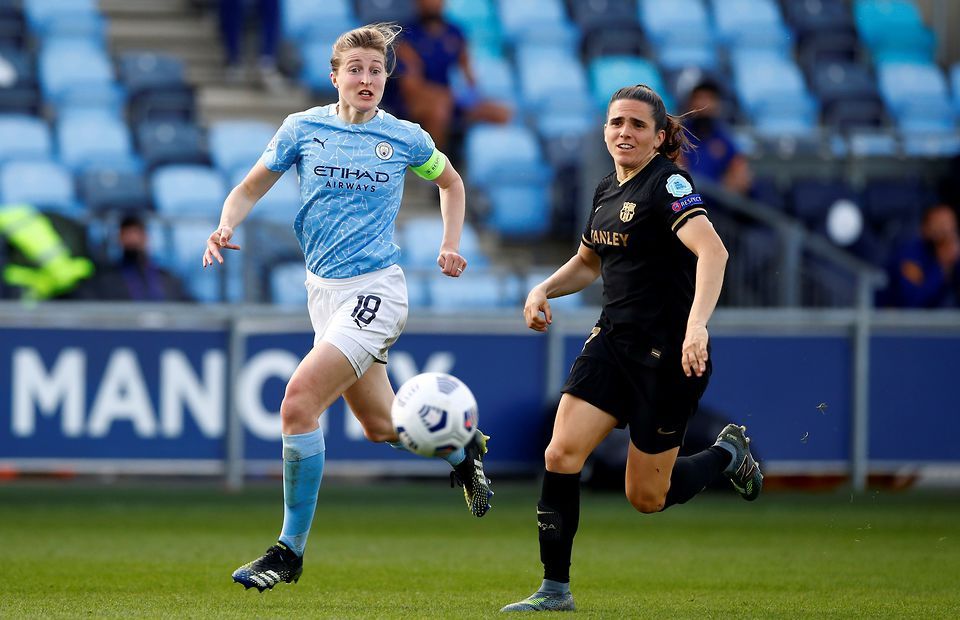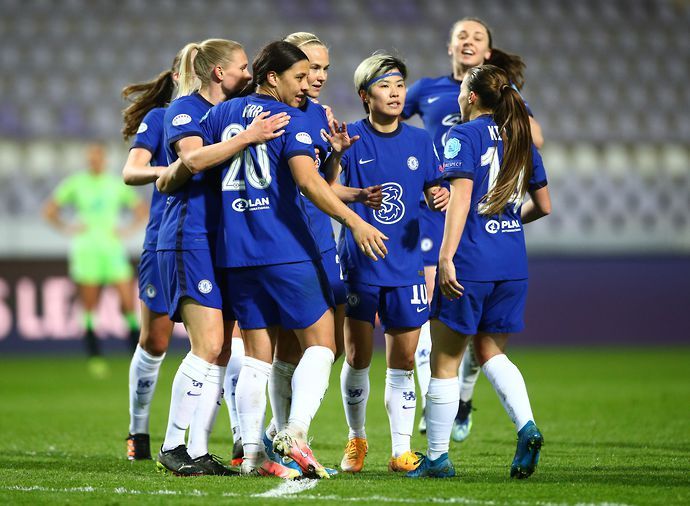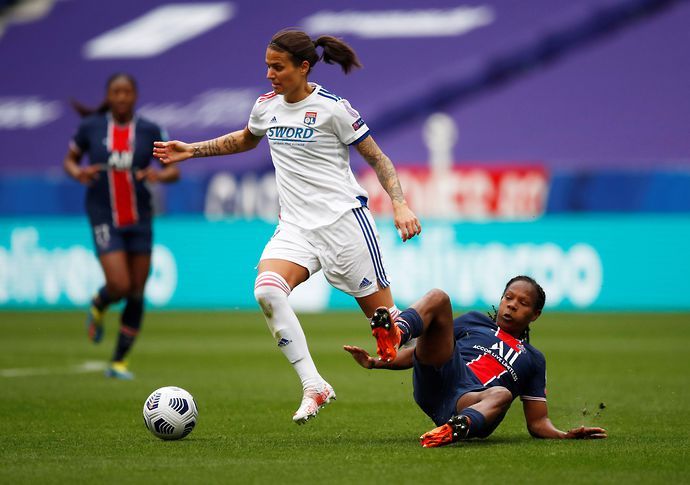The footballing world has been thrown into turmoil after 12 men’s clubs announced they are to breakaway and form a European Super League. But what will this mean for women's football?Premier League sides Arsenal, Chelsea, Liverpool, Manchester City, Manchester United and Tottenham will join AC Milan, Atletico Madrid, Barcelona, Inter Milan, Juventus and Real Madrid in establishing a “new midweek competition" to replace the Champions League.The clubs will continue to “compete in their respective national leagues”, but critics claim the breakaway will destroy domestic leagues and is a move driven by money alone.
European football’s governing body, UEFA, has warned that players involved in the ESL could be banned from all other competitions at a domestic, European or world level. FIFA has also suggested players could be prevented from representing their national team at the World Cup if the ESL goes ahead.
The new competition will start as soon as possible, with a further three teams expected to complete the founding club line-up. The ESL also announced it would launch a women’s competition after the men’s tournament got underway.
Here’s what we know so far about the potential impact of the ESL on women’s football:
When will it start?
A date for the start of the ESL has not yet been set, but organisers have said the event is "intended to commence as soon as practicable". A women’s competition would then be launched as soon as possible after in a bid to “advance and develop the women’s game.”
Sky Sports have reported the ESL could start as early as August, suggesting a women’s event would not be too far behind.
How will it work?
Although not confirmed, it is expected the format of the women’s ESL would mirror the men’s.
This will see 20 teams participating in total – the 15 founding clubs and a further five teams who will qualify annually based on their achievements in the prior season.
Fixtures will take place midweek with the intention of preserving the traditional domestic match calendar.
Clubs will participate in two groups of ten, playing home and away fixtures. The top three in each group will automatically qualify for the quarter finals, and teams finishing fourth and fifth will then compete in a two-legged play-off for the remaining places in the last eight.
A two-leg knockout format will be used to reach the final, set to be a single fixture at a neutral venue.
Which teams will be involved?
This is likely to be the most complex aspect of organising a women’s European Super League. A line-up is yet to be confirmed, but if the women’s tournament was to reflect the men’s event, women’s footballing giants such as Olympique Lyonnais would be absent from the competition.
Of the 12 teams included in the ESL so far, only Arsenal have won the Women's Champions League.
It would also mean teams such as Liverpool would be included in the contest. The Merseyside outfit are currently in England’s second tier of women’s football, as opposed to among the best sides in the world.
If ESL organisers instead decide to deviate from the clubs included in the men’s event, they may find it difficult to persuade sides such as Lyon to become involved.
Find more analysis here.
What has been the reaction?
The reaction to the suggestion of a women’s ESL has been overwhelmingly negative.
Fans have pointed out the ringleaders of the ESL, including Manchester United’s Joel Glazer, Real Madrid’s Florentino Pérez and Juventus's Andrea Agnelli, have only recently invested in women’s football and have shown no real interest in building the game sustainably.
Others have also claimed the women’s competition seems to be an afterthought, included in the founding clubs’ statement to avoid accusations of ignoring the women’s game.
“There's a lot to dislike in the Super League statement – but just dangling that women's equivalent in (without any details or elucidation) – sums up the lack of imagination of the pale stale men behind all this,” posted Adam Crafton, a reporter for The Athletic.
Few players have publicly responded to the news, with the exception of Arsenal defender Lotte Wubben-Moy, although her post has now been deleted.
“Got a feeling young Lotte wouldn’t fancy watching the European Super League,” she posted. “And because of that, an older Lotte probably wouldn’t have seen the pathway and potential to play for her ‘childhood club’ (if that concept would even exist any more?) …”
Lyon striker Ada Hegerberg, who is the all-time top scorer in the Women's Champions League and has lifted the trophy five times, has been vocal in her criticism.
"I grew up loving the @ChampionsLeague," she said. "Then I got to play in the @UWCL. Then I got to win 5 of them and become the all-time leading goalscorer. It's legacy. It's the past, present, and future, so is meritocracy in sports. Greed is not the future."
The full reaction can be found here.
What is the likelihood of it happening?
The creation of a women’s ESL is far from confirmed.
The men’s tournament needs to be given the green light first, and this is likely to be a tricky task given the backlash from FIFA, UEFA, domestic leagues, and the reaction from fans themselves.
If a men’s event does go ahead, a women’s version will become more likely. But again, it will need the agreement of clubs and organisations such as the FA, who govern the Women’s Super League.
You can keep up to date with all the latest women’s football news right here at GiveMeSport Women.






















